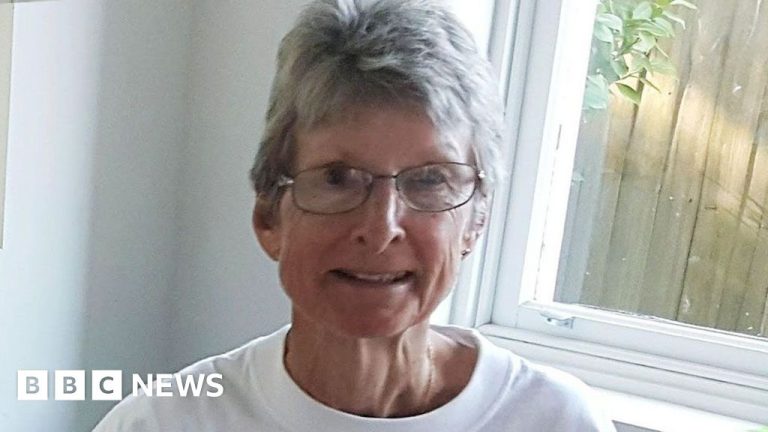Israeli soldiers have told a TV documentary that legal constraints and rules of engagement in Gaza have broken down, with civilians killed at the discretion of individual officers.
“If you want to shoot without restraint, you can,” Daniel, a commander of an Israel Defence Forces (IDF) tank unit, says in Breaking Ranks: Inside Israel’s War, which airs in the UK on ITV on Monday evening. Some soldiers in the film speak on the record; others requested anonymity. All describe the evaporation of the official code of conduct designed to protect civilians.
Several interviewees confirm routine use of Palestinian civilians as human shields, contradicting official denials, and report Israeli troops firing on people rushing to reach food at distribution points run by the Gaza Humanitarian Foundation (GHF). A contractor identified as Sam describes seeing two young men shot while running toward aid: “You could just see two soldiers run after them. They drop on to their knees and they just take two shots … two heads snap backwards and just drop.” He also recounts a tank destroying a civilian car containing four people.
Capt Yotam Vilk, an armoured corps officer, says soldiers were taught to fire only when a target has “means, intent and ability” to cause harm—but adds: “There’s no such thing as ‘means, intent and ability’ in Gaza. No soldier ever mentions ‘means, intent, and ability’. It’s just: a suspicion of walking where it’s not allowed. A man aged between 20 and 40.”
Another soldier, identified only as Eli, says life-and-death decisions are driven by the conscience of commanders on the ground rather than procedures: “Life and death isn’t determined by procedures or opening fire regulations. It’s the conscience of the commander on the ground that decides.” He describes how arbitrary indicators—walking too fast or too slow, one man lagging behind three others—are treated as signs of hostile intent. Eli recounts a senior officer ordering a tank to demolish a building in an area designated as safe; a man on the roof hanging laundry was assumed to be a spotter and the shelling killed and wounded many, despite the nearest military force being 600–700 metres away.
The film also shows how some soldiers say political and religious rhetoric after Hamas’s 7 October 2023 attack—when about 1,200 Israelis and foreign nationals were killed—influenced behaviour in the ranks. Several interviewees say language from politicians and some religious figures suggested that every Palestinian was a legitimate target. Daniel says the rhetoric that “there was no such thing as an innocent in Gaza” filtered down into the army: “You hear that all the time, so you start to believe it.”
A UN commission concluded in September that Israel had committed genocide in Gaza and pointed to incitement from Israeli leaders when assessing intent. The commission cited statements such as one from President Isaac Herzog shortly after 7 October: “It is an entire nation out there that is responsible. It is not true, this rhetoric about civilians not aware, not involved, it’s absolutely not true.” A spokesperson for Herzog said the president has been an outspoken voice for humanitarian causes and the protection of innocents.
The programme provides examples of extremist religious messaging inside the military. Maj Neta Caspin recalls a brigade rabbi advising revenge against all Palestinians, including civilians. Rabbi Avraham Zarbiv, who served in Gaza for more than 500 days, says in the film: “Everything there is one big terrorist infrastructure.” Zarbiv appears to have both advocated for and participated in mass demolitions, claiming credit for tactics later adopted more widely, including the increased use of armoured bulldozers.
Soldiers in Breaking Ranks describe a practice informally called the “mosquito protocol,” in which Palestinian civilians were coerced to enter tunnels and other areas to act as human shields while carrying phones that relayed GPS and mapping data back to Israeli forces. Daniel says the method spread quickly across units after commanders saw it work.
The IDF told the programme it prohibits use of civilians as human shields and emphasised that orders against coercing civilians have been reiterated. It also said allegations of misconduct are examined and that military police investigations have been opened in several cases. In a written statement the IDF said it “remains committed to the rule of law and continues to operate in accordance with its legal and ethical obligations, despite the unprecedented operational complexity posed by Hamas’s systematic embedding within civilian infrastructure and its use of civilian sites for military purposes.”
Guardian analysis in August of IDF intelligence data found that Israeli military officials’ own reckonings indicated that 83% of those killed in Gaza were civilians—a historic high for modern conflicts—though the IDF disputed that analysis. More than 69,000 Palestinians have been killed since the war began, and deaths have continued despite a ceasefire that began a month ago.
UN figures show at least 944 Palestinian civilians were killed while seeking aid in the vicinity of GHF distribution sites. GHF and the IDF have denied targeting civilians seeking food, and the IDF denies systematic war crimes, saying it operates under international law and takes measures to minimise civilian harm. The programme notes that internal investigations into civilian deaths have resulted in virtually no disciplinary or legal accountability.
Breaking Ranks also portrays the psychological toll on some soldiers. “I feel like they’ve destroyed all my pride in being an Israeli – in being an IDF officer,” Daniel says. “All that’s left is shame.”
Breaking Ranks: Inside Israel’s War will air in the UK at 10.45pm on Monday 10 November on ITV1, ITVX, STV and STV Player.






